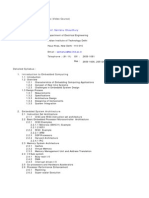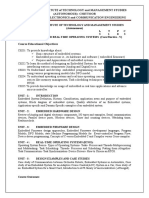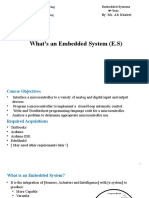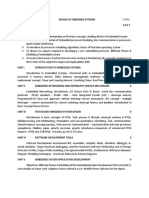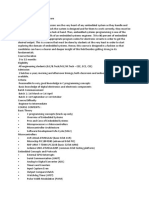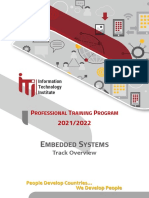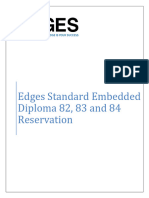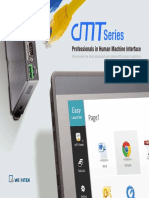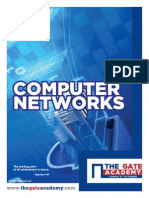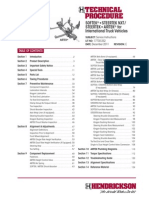0% found this document useful (0 votes)
19 views2 pagesEmbedded Systems Design and Development
The document outlines a course on Embedded Systems Design and Development, focusing on the fundamentals, design, programming, and debugging of embedded hardware-software solutions. It includes prerequisites, tools, course objectives, and a detailed syllabus covering topics such as microcontrollers, real-time operating systems, and IoT applications. Successful completion leads to a Government-Recognized Certificate and various performance-based badges.
Uploaded by
contact.vidyawanCopyright
© © All Rights Reserved
We take content rights seriously. If you suspect this is your content, claim it here.
Available Formats
Download as PDF, TXT or read online on Scribd
0% found this document useful (0 votes)
19 views2 pagesEmbedded Systems Design and Development
The document outlines a course on Embedded Systems Design and Development, focusing on the fundamentals, design, programming, and debugging of embedded hardware-software solutions. It includes prerequisites, tools, course objectives, and a detailed syllabus covering topics such as microcontrollers, real-time operating systems, and IoT applications. Successful completion leads to a Government-Recognized Certificate and various performance-based badges.
Uploaded by
contact.vidyawanCopyright
© © All Rights Reserved
We take content rights seriously. If you suspect this is your content, claim it here.
Available Formats
Download as PDF, TXT or read online on Scribd
/ 2




